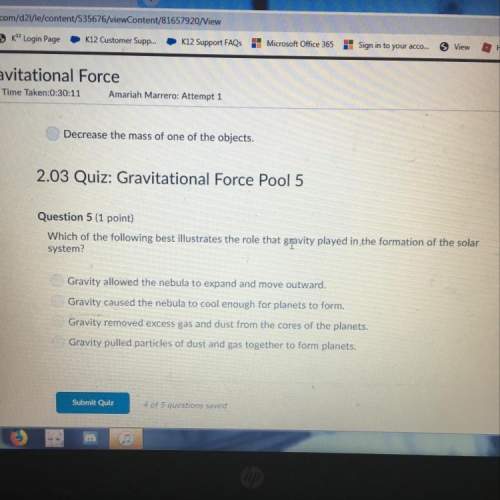
Chemistry, 27.01.2020 19:31 baaaaaaaagoat6222
Which of the following is true regarding chemical and nuclear reactions? a. both processes are always affected by changes in temperature, pressures, and catalysts. b. both processes are associated with large changes in energy. c. both processes involve breaking bonds. d. both processes involve subatomic particles.

Answers: 3


Another question on Chemistry

Chemistry, 22.06.2019 17:00
What is the approximate vapor pressure when the gas condenses at 70 degrees celsius
Answers: 2

Chemistry, 22.06.2019 20:00
There are two steps in the usual industrial preparation of acrylic acid, the immediate precursor of several useful plastics. in the first step, calcium carbide and water react to form acetylene and calcium hydroxide: cac2 (s) + 2h2o (g) → c2h2 (g) + caoh2 (s) =δh−414.kj in the second step, acetylene, carbon dioxide and water react to form acrylic acid: 6c2h2 (g) + 3co2 (g) + 4h2o (g) → 5ch2chco2h (g) =δh132.kj calculate the net change in enthalpy for the formation of one mole of acrylic acid from calcium carbide, water and carbon dioxide from these reactions. round your answer to the nearest kj .
Answers: 3


Chemistry, 23.06.2019 01:00
Substance 33°f 100°f peanut oil solid liquid margarine solid liquid chocolate chips solid liquid which conclusion fits the data in the table? a. heat chemically changes chocolate and margarine. b. all solids become liquid at 100°f. c. removing heat from a substance it to melt. d. matter may change shape when it is heated.
Answers: 1
You know the right answer?
Which of the following is true regarding chemical and nuclear reactions? a. both processes are alwa...
Questions









Engineering, 20.02.2021 07:10

Chemistry, 20.02.2021 07:10


English, 20.02.2021 07:10

Social Studies, 20.02.2021 07:10

Mathematics, 20.02.2021 07:10

Mathematics, 20.02.2021 07:10


World Languages, 20.02.2021 07:10


Mathematics, 20.02.2021 07:10





